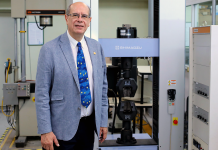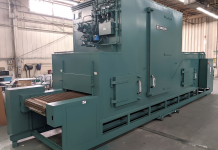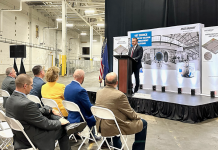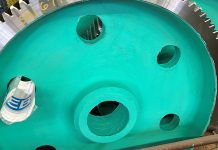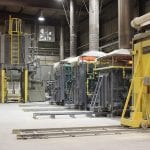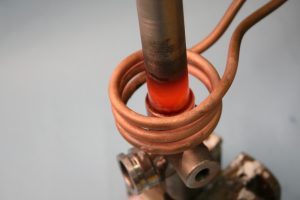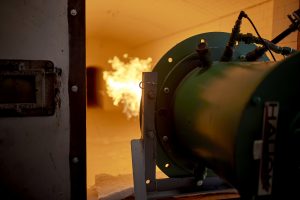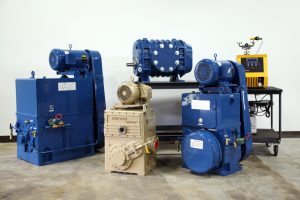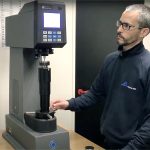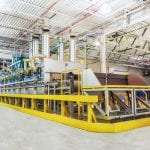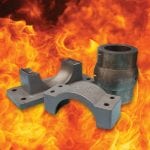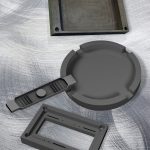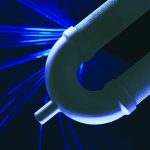A good measure of success is repeat business. For a company that builds industrial furnaces, repeat customers become even more impressive.
For Abbott Furnace Company, that repeat business is indicative of just what kind of company it is.
“We have several customers who have purchased several dozen furnaces from us,” said Dan Reardon, director of technical sales for Abbott Furnace. “We have many more that have purchased multiple furnaces. To me, this illustrates how well our furnaces perform and that we have a very good commitment to our customers to provide excellent service after the sale.”
Abbott has, to date, produced 875 furnaces that are currently in service in a variety of industries, according to Reardon.
“Our philosophy is to be the market leader in the design, production, and service of continuous process industrial furnaces,” he said. “And we do this by focusing our resources on the development of new technology to meet our customer’s specifications.”
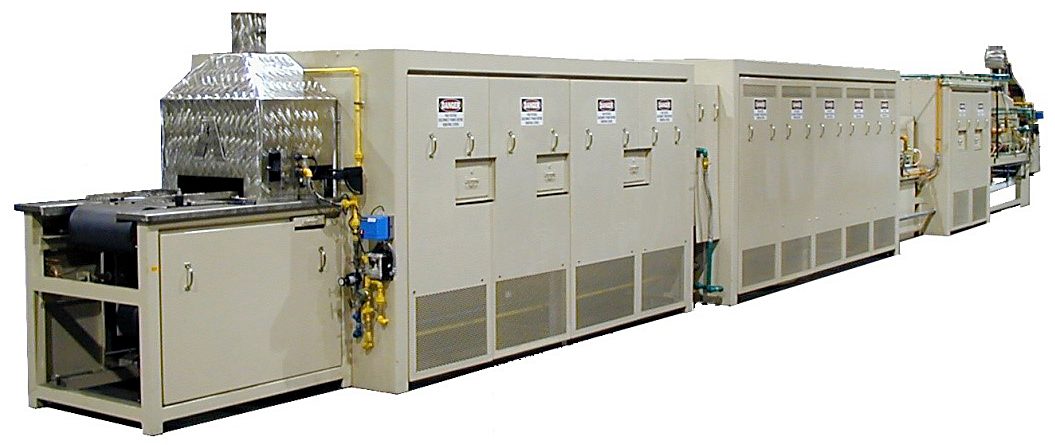
Atmospheric applications
Abbott’s furnaces run a gamut of applications, but for heat treating, Reardon said Abbott excels in atmospheric furnaces.
“We have very good troubleshooting skills, field service, and we’re ISO 17025 certified for doing temperature calibrations,” he said. “We’re also capable of doing onsite training on our equipment and thermal processes. We can do that several different ways: We can provide that via the web through WebEx-type applications or come to your facility and present it one-on-one. We’re very big into the sintering market in the PM fields.”
Abbott also offers brazing furnaces, according to Reardon.
“We do a lot of brazing furnaces, and we especially excel in continuous stainless-steel brazing furnaces because we’re very good at atmosphere control,” he said.
Abbott has a variety of pusher furnaces with temperatures up to 2,900 degrees Fahrenheit, according to Reardon, and the company can produce roller hearth furnaces with a variety of atmospheres.
“We do continuous heat-treat furnaces like your typical oil quench furnace and all the ancillary equipment that goes with those — the washers, dryers, temper furnaces,” he said. “We can do the whole line front to back.”
Abbott also makes lab-scale furnaces, atmosphere generators, box furnaces, and car bottom furnaces, according to Reardon.
“We also offer some specialized batch furnaces, particularly if they require some kind of atmosphere control,” he said. “Our forte is atmosphere control. But if there’s something outside that market that’s required and that we can utilize our skills on, then we’ll tackle that as well.”
Tailor-made solutions
That means Abbott has the capabilities to tailor equipment to meet its customers’ needs.
“Particularly, when we talk to a customer, you’ll always hear us ask them, ‘What are your time-at-temperature requirements and your atmosphere requirements?’” Reardon said. “Because, once we define what they’re trying to do from a temperature and atmosphere point of view, it leads us down the path of what kind of equipment we need.”
Reardon points out that involves getting with the customer and asking specific questions to tackle the challenge, such as:
- What is the product?
- What is the size?
- How do you plan on loading it on a furnace?
- How is it going to be unloaded?
“Then we ask them to define their challenges that they have currently — if it’s an existing product or if it’s a new product and what they expect the challenges to be, so that, hopefully, we can design as much of the challenge out of the system as we can,” he said.
If that means a new untested product, Abbott will work with them to develop a needed profile by running trials on actual production equipment, according to Reardon, which will help determine if the trial was effective and ensure the proposed process meets the customer’s requirements.
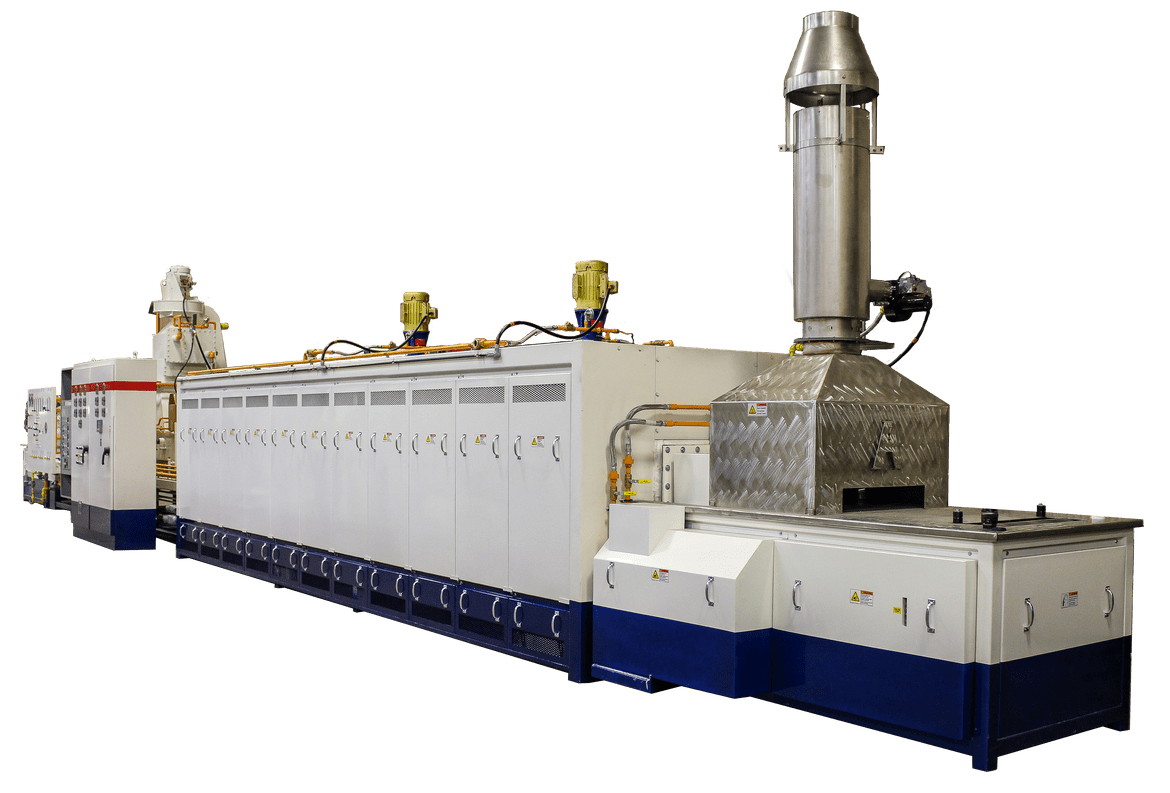
Industry innovations
Abbott continues to push the envelope in an ever-changing industry, and has several innovations to show for it.
“We have been ISO 17025 accredited for 15 years,” Reardon said. “We’ve also developed several furnaces to manufacture solid oxide fuel cells. In our time since 1982, we’ve become a market leader in the powder metal business as well as a leader in supplying equipment in the stainless-steel brazing world and other brazing technologies. We’ve recently had two new developments at Abbott. We’ve developed what we call the Abbott SMART System (Self-Monitoring, Analysis and Reporting Technology). It is designed to help meet the stringent requirements that come along with heat treatment standards like the AIAG CQI-9 and other systems that require data collection.”
The SMART System can save time and money by providing monthly or quarterly tests to validate equipment performance, according to Reardon.
“We’ve also recently designed a new piece of equipment called the Vulcan System and if you’re into the powder metal world at all, you know one of our biggest challenges is getting a lubricant out of the part,” he said. “That has been the issue for my whole career at Abbott for sure, so we tried to design a piece of equipment that would aid in that technology where we could isolate the variables required to perform the de-lubrication process more effectively. And we’ve designed a new system that does that quite well and efficiently. We now have four or five of them in the field, and all of them are working beyond expectations.”
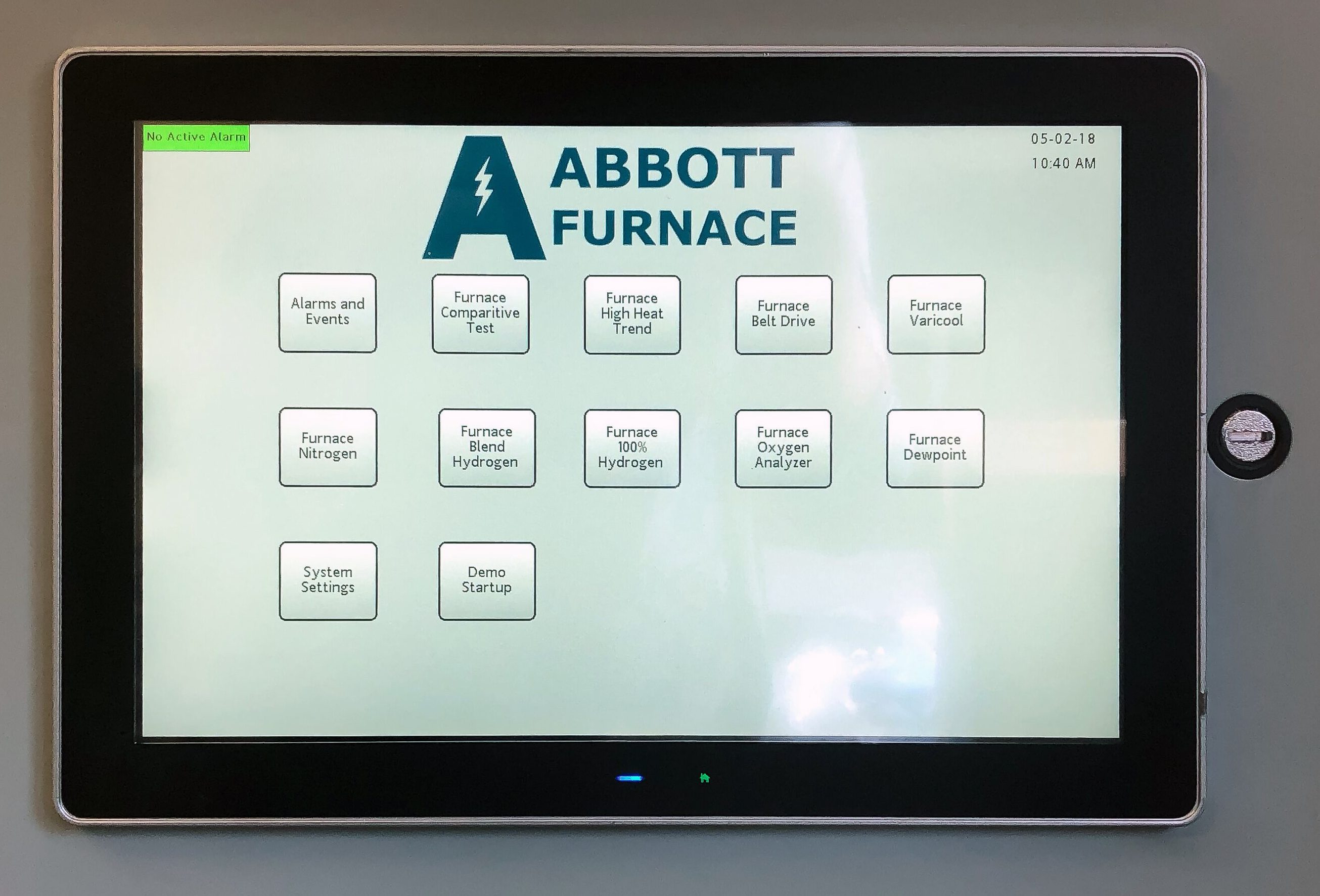
More than 35 years of experience
Abbott has come a long way since it began in 1982 as Abbott Control Systems when it was primarily providing service for other manufacturers’ equipment while building some control panels, according to Reardon. When the owner realized there was hardly any new advancements in furnace technology, he began to manufacture them himself, building its first one in 1986.
Now, Abbott Furnace has about 80 employees working in a 75,000-square-foot manufacturing facility in St. Mary’s, Pennsylvania, and is still privately owned and operated. And Reardon points out that during that time, the industry has changed dramatically in the past 30-plus years.
“When we first started, we were pretty much the new kid on the block, and we had to really prove ourselves in our process and service abilities to even succeed in the industry,” he said.
A large part of that change is the move toward more data-driven equipment and processes, according to Reardon.
“What we’re seeing happen now is that the industry’s becoming much more data-driven,” he said. “It’s not so much of a black art or witchcraft-type science as it used to be and, this is leading the industry into a new direction. We continue to try and advance our furnace technology to provide better process control and monitoring to help industry meet the Industry 4.0 challenges that you see going into the future.”
But Abbott Furnace doesn’t plan on shying away from embracing the challenges brought on by Industry 4.0. On the contrary, Reardon said Abbott will continue to focus on improving its people, processes, and products, such as the Vulcan and SMART System, in order to meet the ever-changing thermal processing market’s needs.
“We do this by trying to stay abreast of all the best technology that’s out there and build it into our equipment to help make it more energy efficient and to try and reduce operating costs such as atmosphere costs and electrical usage for our customers,” he said.
MORE INFO www.abbottfurnaceco.com



